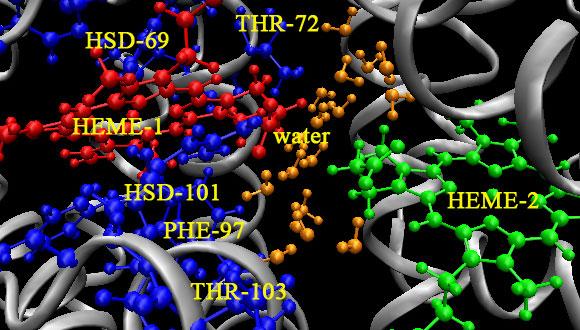Chemical Physics Seminar: Mechanism of Virus Assembly and Disassembly
Uri Raviv, The Hebrew University of Jerusalem
Zoom: https://zoom.us/j/99773193367
Abstract:
There is a huge number of possible intermediates on the assembly path from hepatitis B capsid protein dimers to 120-dimer capsid. If every intermediate were tested, assembly would often get stuck for entropic reasons and essentially every capsid would follow a unique assembly path. Yet, capsids assemble rapidly with minimal trapped intermediates. To understand the fundamental mechanisms of capsid assembly it is critical to resolve the early stages of the reaction. To observe assembly, we used time-resolved Small Angle X-ray Scattering, which is sensitive to solute size and shape and has millisecond temporal resolution. Scattering curves were fit to a thermodynamically curated library of assembly intermediates, using a maximum entropy approach to provide a physical rationale for the selection of intermediates. We found that capsid assembly was controlled by the supersaturation state of the system at the onset of assembly, dictating the intermediate structures during the early stages of the reaction. With the mildest conditions tested, we observed a nearly two-state reaction from dimer to capsid with a small number of dimers-of-dimers and trimers-of-dimers. In slightly more aggressive conditions, we observed a decamer -of-dimers and a 90-dimer species. In conditions where there is measurable kinetic trapping, we found a greater diversity of early intermediates, accumulated within a fraction of a second and propagated into long-lived kinetically trapped states (>90-mer). In all cases, intermediates >30 and <90 subunits did not accumulate. These results indicate the presence of low barrier paths that connect intermediates that can direct the ultimate assembly path to late intermediates where assembly can be paused. In the last part of the talk, the disassembly mechanism will be discussed.


